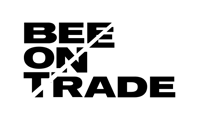Imports into the European Union require an EU Importer of Record, an EORI number, and a VAT
EORI Number
EORI (Economic Operator Registration and Identification) numbers are unique identification numbers assigned by customs authorities to businesses that trade internationally. EORI numbers are required for customs clearance purposes in the EU and are used to identify the business in all customs-related matters.
To obtain an EORI number, businesses must apply to the customs authorities in the EU member state where they are established or where they intend to import or export goods. In some cases, businesses may also be required to register for EORI numbers in other EU member states where they have significant trade activities.
VAT (Value-Added Tax) VAT (value-added tax) is a tax that is applied to the sale of goods and services within the EU. Non-EU businesses that import goods into the EU are generally required to pay VAT at the time of import. The VAT rate that applies to a particular import depends on the type of goods and the country of destination.
Non-EU businesses that import goods into the EU may also be required to register for VAT in the EU member state where they are importing the goods. This is typically the case if the business has a significant level of imports into the EU or if it intends to sell imported goods to customers within the EU.
It's important to note that VAT is just one of the trade-related costs that may apply to imports into the EU. Other costs such as customs duties, excise duties, and other import taxes may also apply, depending on the type of goods and the country of destination.
It's important to research and budget for all applicable trade-related costs when planning your import to the EU.
VAT Value-added tax (VAT) is a tax on the sale of goods and services in the EU. VAT is charged on most supplies of goods and services that are carried out by a business in the EU.
As an importer into the EU, you will be responsible for paying VAT on your imported goods. VAT rates vary by EU member state, but the standard VAT rate is around 20%.
Do I need to register for VAT in every EU country I import to?
No, you only need to register for VAT in the EU member state where you are importing the goods into. You can then use the VAT number obtained from this member state for imports into other EU member states.
However, if you are importing into multiple EU member states regularly, it may be more efficient to register for VAT in each member state where you are importing into. This can be done through the VAT Mini One Stop Shop (MOSS) system, which allows businesses to register and pay VAT in one member state rather than in each member state where they are importing into.
It's important to note that VAT rates and rules vary by country within the EU. Some countries have a standard VAT rate, while others have reduced rates for certain goods and services. It's important to be aware of the specific VAT rates and rules that apply to your goods in the country of import.
In addition, some goods and services may be exempt from VAT or subject to special rules. It's always a good idea to consult with a tax professional or the local tax authorities to ensure that you are properly complying with VAT requirements for your imports into the EU.
